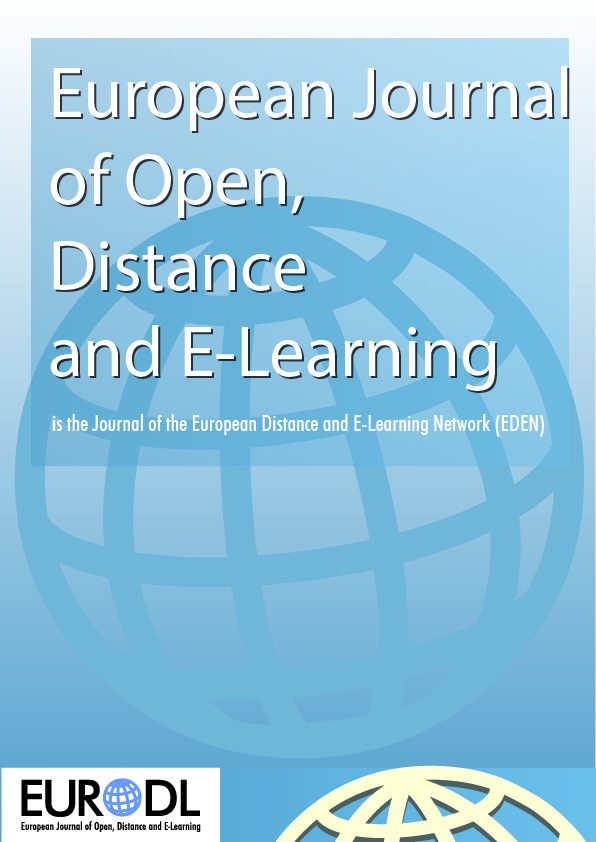Factors Affecting Students’ Preferences for Online and Blended Learning: Motivational vs. Cognitive
Factors Affecting Students’ Preferences for Online and Blended Learning: Motivational vs. Cognitive
Author(s): Sinan KeskinSubject(s): Social Sciences, Education, Higher Education
Published by: European Distance and E-Learning Network
Keywords: online learning; blended learning; mode of teaching and learning delivery; e-learning readiness; cognitive strategies; learner motivation; optimal scaling
Summary/Abstract: Today’s educational institutions are expected to create learning opportunities independent of time and place, to offer easily accessible learning environments and interpersonal communication opportunities. Accordingly, higher education institutions develop strategies to meet these expectations through teaching strategies, such as e-learning, blended learning, mobile learning, etc., by using teaching technologies. These new technology-based teaching strategies are mainly shaped by decision-makers in education. This study seeks to analyse the individual factors that affect learners’ mode of teaching and learning delivery preferences. In this study, blended and online learning is considered as preferences of learners’ mode of teaching and learning delivery. The individual factors discussed in this research are cognitive learning strategies, e-learning readiness, and motivation. The data were obtained from the pre-service teachers at the end of the academic semester when they experienced online and blended learning. Data were analysed using optimal scaling analysis. The analysis method provides a two-dimensional centroid graph which shows the correlations between the variable categories. According to study findings, there is a correlation between the preferences of the learning environment, and the constructs of self-efficacy, e-learning motivation, and task value. It can be said that the motivational variables are more effective in the learning environment preference. The students with high task value, e-learning motivation, and self-efficacy preferred studying in blended learning environments. Cognitive strategies, self-directed learning, learner control, and test anxiety factors are independent of the learners’ learning delivery preferences.
Journal: European Journal of Open, Distance and E-Learning (EURODL)
- Issue Year: 22/2019
- Issue No: 2
- Page Range: 72-86
- Page Count: 15
- Language: English

